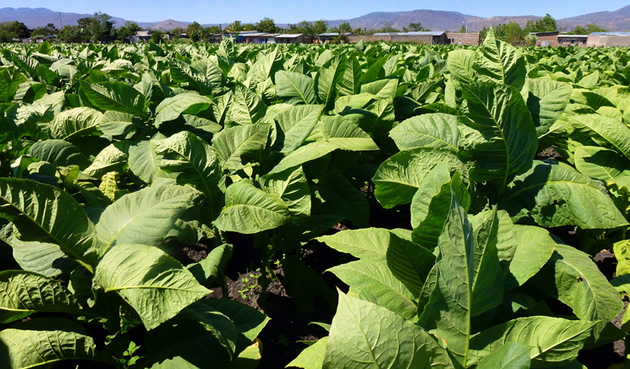EDITORIAL COMMENT: Farmers must avoid impulsive spending

Tobacco is an important crop for Zimbabwe given its foreign currency generation potential, job creation and general contribution to the economy.
Although the number of tobacco farmers changes yearly, an average 100,000 register to grow it every season. These are only registered farmers, who we expect have families. Tens of thousands more are employed on the tobacco farms and many more in processing and marketing of the golden leaf. Its employment creation potential can go up to 200,000.
Zimbabwe earns large sums of money exporting the crop to countries like China, Belgium, South Africa and United Arab Emirates. It is our biggest agricultural export product which competes with precious minerals in the stakes of the country’s largest export commodity.
Every year we look forward to the beginning of the tobacco marketing season, the prices offered, the end of the selling period and so on.
Therefore, tobacco is big news for us.
This year, the auction flows will open on Wednesday and on the following day, Thursday, contract sales will begin.
Given inclement weather at critical stages of the growing season, the industry expects reduced output this year but that will not dampen our hopes for a successful marketing period. Production in Brazil, one of the world’s largest tobacco producers, was affected by floods, reports say. The market does not expect a bigger crop in Zambia and Malawi, but in Tanzania it is smaller this season. This constrained global outlook should, ordinarily, work in the farmer’s favour. The principle of demand and supply must give the farmer a good price.
Our farmers have sometimes protested against low prices at the auction floors. We noticed this last year. We don’t expect that to recur this year given the reduced output and prospects for a good price.
However, we understand that reduced supply, on its own, does not automatically translate to higher prices. The quality of the crop is a huge factor influencing the price merchants will pay farmers. We thus, hope that our farmers will deliver a high quality crop that will attract a good price.
At the same time, we implore buyers to be professional and honest — paying the right price for the best crop — not to collude with their peers across the auction floors to fix prices at the lower end.
That is dishonest business which is condemnable, criminal, in fact.
Whereas farmers who put their crop through the floors routinely complain of poor prices, their counterparts who grow and market it through the contract system are often happy with the high prices their contractors pay.
This season, the Tobacco Industry and Marketing Board and the Reserve Bank of Zimbabwe have come up with a decision to ensure that all farmers open bank accounts and only to be paid through their banks. This is unlike in previous seasons when some decided to be paid in cash immediately after they sold their crop.
Some farmers have complained in advance about this requirement. They are, to some extent justified because they are used to getting their money promptly. Now they need to hustle opening bank accounts. After queueing at the marketing floor to sell their tobacco, they will have to queue like every depositor to withdraw their money.
But there are good reasons for the implementation of the compulsory bank account rule. With a bank account, a farmer will find it easy to secure loans if he or she chooses to, producing a bank statement with their earning record. It also reduces the chances of an excited farmer losing his cash to pick-pockets at the auction floors and gives him time to reflect on his seasonal windfall before spending it.
Payment through a bank account lends considerable professionalism to a farmer’s work. Smaller producers need to aspire to be like bigger ones who certainly cannot be paid their $500,000 in sales earnings right at the auction floor.
However, we would have expected authorities to only encourage, quiet robustly, farmers to open bank accounts, spelling out the advantages while giving room to those who find it inconvenient to opt for cash payments.
On a cautionary note, we advise farmers to spend their money more responsibly this term. This is a vital point to make because over the years, some have blown their money on beer and women soon after they are paid, starting to borrow bus fare to return to their homes after they sober up.
We implore them to carefully plan how they will spend their incomes and only spend as planned. Impulsive spending leads to tears, and empty pockets. Those who are self-financed have to plan for the forthcoming season by initiating requisite investments into it by buying inputs as soon as they are paid for their deliveries.










Comments